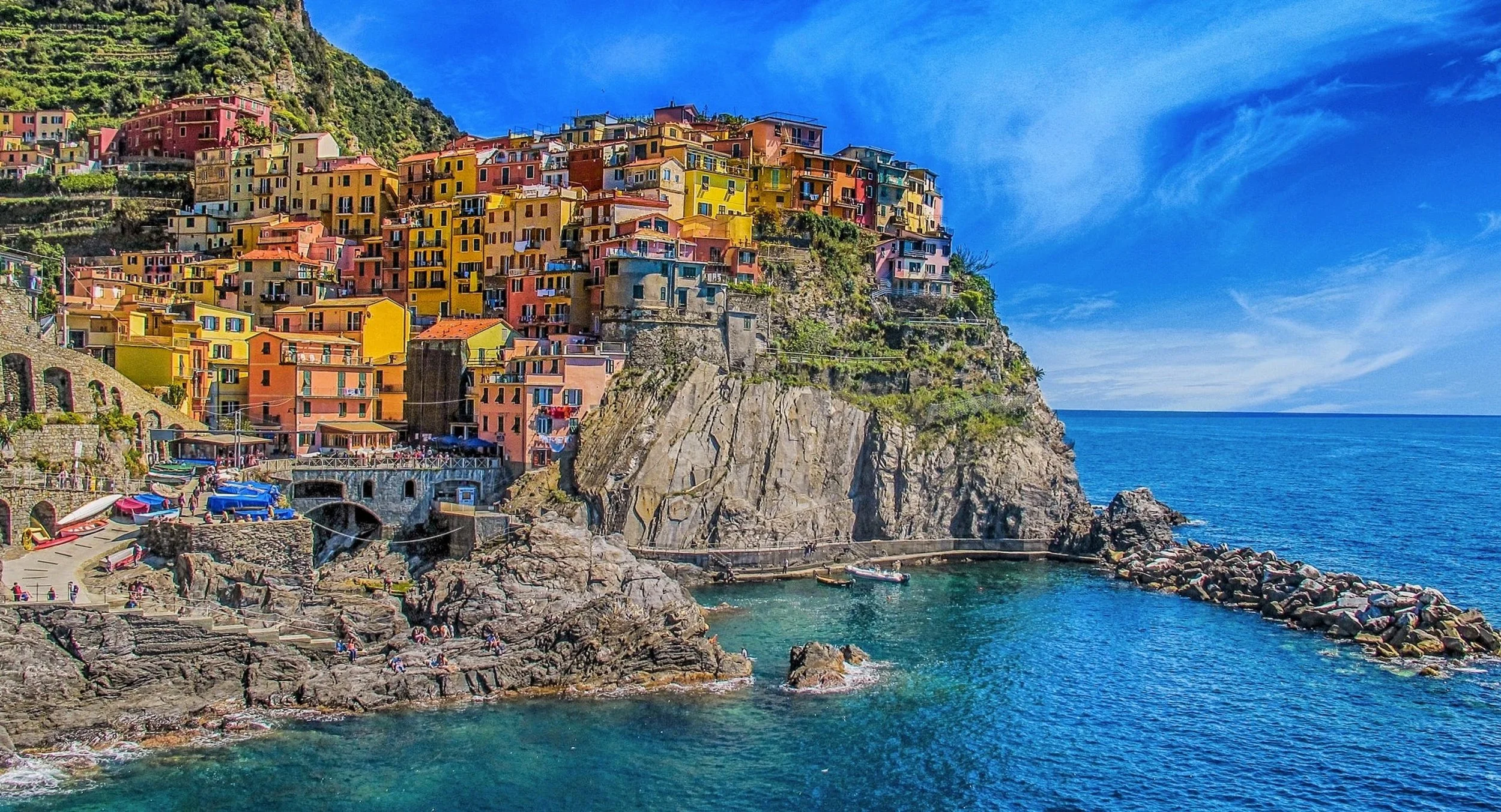Living within means
Through groundbreaking scientific discoveries, mankind has been turning the pages of the book of nature and methodically unraveling its secrets. Just a few centuries ago, very little was understood of the fundamental laws of nature, and many natural phenomena were relegated to the realm of the supernatural. Many of nature’s mysteries can now be scientifically explained and we are steadily marching towards understanding subtle realms beyond even atoms. These discoveries tell us that Mother Nature is open to scrutiny through a scientific lens, and its laws more than hold up to the rigor of systematic discovery. It’s beauty also appeals to the heart, and a scientific bent of mind isn’t required to derive joy from admiring the striking visual aspects of nature. Nature also readily serves those in search of its hidden resources, with the sky bearing silent witness to the raw wounds inflicted on land. Despite its abundance, nature does not exceed its means. Everything, except solar energy, that is needed for Mother Nature to evolve and change is sourced locally on our planet.
Unlike nature, which is open for all to experience and enjoy, the mind is generally a closed shop. The mind isn’t generally a place where we seek refuge and relaxation. For the most part, the mind is tightly wound up like a coil, waiting to unravel. We can walk freely on a beach, through a meadow or even the streets of a major city but when it comes to the mind, we tread cautiously. A hard-won balance in the mind is easily upturned and even a little disturbance can ricochet through the mind. The mind can be more fragile than even the most delicate ecosystem found in nature. Mental peace, rather than being an abundant and surplus resource, is more endangered than animals on the verge of extinction such as the African black rhino. Just as over-hunting and poaching have driven many animal species to the endangered list; when we incessantly “hunt” the mind and kill innocent thoughts in order to find the ones that match our greed, the forest of peace burns down. The mind can become an unforgiving place when we live beyond our means to provide for its greed. The human body may be thought of as a microcosm of nature. Just as the majority of our planet’s surface is covered by water, the composition of the human body is mostly water. Despite the abundance of air, water and food, there is a limit beyond which the body cannot absorb, store and utilize these vital ingredients for life.
The human body, although an independent living entity, is an offshoot of nature. In some respects, it is no different than a tree, as both starts of as tiny seeds. Trees draw energy from the sun, air, and water. The body also derives energy from the air, water, and the sun’s energy indirectly through the food that we eat. The cells of the body utilize a predefined amount of energy and this is ultimately coordinated by the nervous system. The cells in the tree and the human body both have limits beyond which they cannot consume more. The mind does not have pre-specified limits. This tussle between the body and the mind is very evident at mealtime when we often overload our stomach. This is a manifestation of greed, not of the cells of the body but of the mind.
It is hard not to live beyond our means in mind when there is such a vast and enticing display of thoughts crossing our mind space. They are all up for grabs and we end up hoarding more than we can use or need. Just as with any physical object we own, thoughts that we buy into need a place where they can be stored and retrieved from. Just as there is a price to be paid for acquiring worldly objects, these intangible mental “objects” also demand payment. By constant focus on the external world and expectation of what we can get, we lose the right to hold the keys to the inexhaustible vault of inner peace.
Just as the earth is suspended in space that extends to unfathomable distances all around, the body is enveloped by the mind, which stretches far and wide. Thoughts are like heavenly bodies suspended in space. The thoughts we like and identify with appear to be housed on a welcoming and hospitable island within the mind, where we aim to frequently visit. Most of the rest of the mind remains a mystery that is waiting to be unraveled. What is a rare resource on earth such as gold and platinum is found in plenty on hard to get to heavenly objects such as asteroids. Similarly, peace and happiness is a rare resource in the conscious mind but may be mined from the inner recesses of the core of our being. Just as we expend a lot of time and energy extracting gold from the earth’s surface, we burn through time and mental energy trying to extract happiness from the world. If the same time and energy were spent elsewhere such as looking within ourselves, the treasure of happiness that we will one day find will not be tagged with limitations. All sources of happiness that are external to us are ultimately limitations. We forget to read the fine print that states that the inner surge of happiness ebbs and is followed by a gradually building tide of misery. This misery comes in many forms, the most common is the fear of losing the source of our happiness, be it another human being or a worldly object.
The mind, like the vast expanse of the universe all around us, has no limitations when it is in its pure state. Thoughts can travel freely and as far as one’s imagination can stretch. The extent to which our imagination travels speaks to the potential of the human mind. We are free spenders when it comes to buying into, identifying and pinning imaginary experiences to the ever- expanding canvas of the mind. We go way beyond our means when it comes to acquiring thoughts and calling them as our own. However when it comes to expressing kind thoughts, reassuring words or helpful actions we become misers. It is ultimately the fear of loss, of the “I” that makes us hold onto what we could have easily shared. The “I” creates boundaries on all four sides of the mind and this forms a potentially unshakable foundation on which our self- created limitations rest.
It is easy to forget the limitless potential of the human mind when habits and mental conditioning create limited channels through which the mind’s energies are forced to flow. The physical senses, on the other hand, have finite capabilities but are driven to the extreme, beyond their limitations, in the quest to quench desires that constantly spring up in the mind. Living within the limited means of the physical senses is a virtue that is very frequently discarded. When the enormous scope of the power of the mind is forcibly squeezed through the senses, that mental power inevitably becomes limited.
The forces of nature are aligned towards an expansion of life and disrupting barriers to its sustenance. For nature to thrive, every living entity from the tiniest microorganism to a giant blue whale must play a part. For the human body to be one seamless healthy unit, every cell and organ must contribute to the balance between creation and destruction. Similarly, in the mind, a balance between the creation and destruction of desires is critical to the mind’s health, which is reflected in the degree of mental peace we enjoy. Desires ebb and flow constantly, but we have the unique ability to stand apart from them and bear witness. We can readily enjoy the spectacle of waves cresting and falling on the surface of an ocean, without being pleased or displeased with any particular wave. Why can’t we also watch the waves of desire without endangering ourselves? Only an intrepid few can ride giant waves on a surfboard, all for just the thrill of it. Similarly, only those with strong willpower can wade into a pool of desires without being drowned in it. Just as the waves of an ocean are endless and cannot be peeled away from the surface, desires are part of the fabric of the mind, which appears to stretch into infinity.
Like waves on an ocean that carry some of the ocean’s energy, the energies of the mind also get entrenched in the desires we identify with. Desires are freely available to us through our thoughts, we can enjoy many of them, but there are repercussions. The danger of desires is that they can feed on one another into perpetuity. Like cancer cells that have the ability to live forever, thoughts infected with strong desires are virtually immortal. We can, however, burn these thoughts and release that trapped energy by watching them without getting emotionally entangled. The sun is so far away from earth, yet it has the power to turn the water on an ocean’s surface to invisible vapor. Similarly, witnessing the mind from a distance can burn and release energy that is trapped in the sea of desire. By doing so, the awareness that may have become stagnant and locked in with thoughts is able to gather steam and expand into a greater sky. It is the expansion of awareness rather than an explosion of desires that creates an abundance of happiness within. Like nature which shares its abundance, we can become givers rather than takers. The well of inner happiness in one person can quench the thirst of the entire world without drying up. Inner joy is already embedded within all of us. Once we find it, we will never have to worry about living within limited means, as there will be a surplus of it in every moment.







